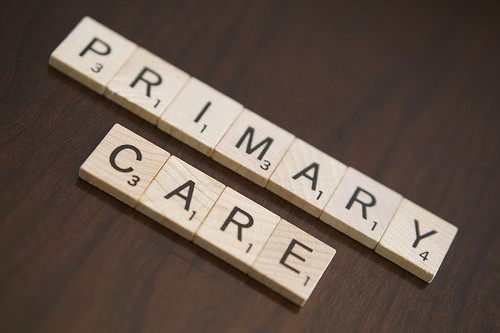Consolidating the future of the NHS
Consolidating the future of the NHS
The NHS England planning guidance was published at the end of March, and the key word in the document is…

Over the last few months I’ve had to see my GP more regularly than usual in order to sort out a non-urgent medical issue, and this inevitably meant I had to enter the incredibly frustrating world of GP access. To give some background, in order to get an appointment with my GP I either have to queue outside my GP practice at 08:00 waiting for it to open, or phone their dedicated appointment line that opens at 08:30 in order to get an appointment for that day. There are no pre-bookable appointments, unless you have already been to see the GP and they have pre-booked a follow up appointment for you. This makes it quite difficult to get an appointment as I am generally at work by 08:00, and am then a 90 minute journey away from my GP.
I therefore understand why many people are now choosing to bypass their GPs, and actually plan to go to their local A&E in order to receive the medical treatment they require. After all, for huge numbers of people a four hour wait in a hospital emergency department seems like a better option than having to wait days and even weeks to get a GP appointment.
So why is this happening?
Is it that GPs need to provide 7 day a week, 24/7 access to their services? Or is it a technology issue that could be resolved by giving people the freedom to book their own appointments by providing both online and app based appointment booking, allowing people to log on and book appointments for when it suits them, whether it be later on the same day or on a day and at a time that works best for them?
I think that although both of these things may help alleviate frustrations with the current system, they do not actually address the underlying problem that GPs are no longer being used solely to provide medical advice and treatment. The role of the GP has evolved over the years and they now provide much more than just medical advice, acting as a trusted advisor, dealing with social, psycho-social and mental health issues as well as just being someone to talk too. This means that they are seeing more people more often and as a result of this increased demand on the system they are not able to provide sufficient appointments to those who need them, resulting in people defaulting to using other access points, such as A&E in order to receive the treatment they need.
So what can we do about it?
My suggestion is that they revert to their core principles and start using their time more effectively so that they only see patients with medical needs, and / or those with complex needs that require GP led oversight and coordination. All other appointments should be screened or triaged and directed to another, more appropriate health professional, such as a district nurse, community matron, social worker, therapist or even a community pharmacist. This will not only free up GP capacity to see more patients (potentially without having to extend practice surgery times), but it will also alleviate the increasing inappropriate use of A&E as an extended GP surgery, as well as ensuring that people are actually seen by the most appropriate health and social care professional for their needs.
This all sounds fairly obvious, so why isn’t it happening already?
Well it comes down to primary care (GPs), community care and social care all being commissioned separately, resulting in the health and social care professionals operating in silos, and all working to different agendas. I believe that the only way to truly alleviate the current access issues is to start working better together and by that I mean joint commissioning, pooling of budgets, and shared accountability for the provision of care. Until this happens it doesn’t matter how long surgeries are open for, or what technology they have in place to enable people to easily book appointments, as the GPs will still be overburdened by the demand for their time.